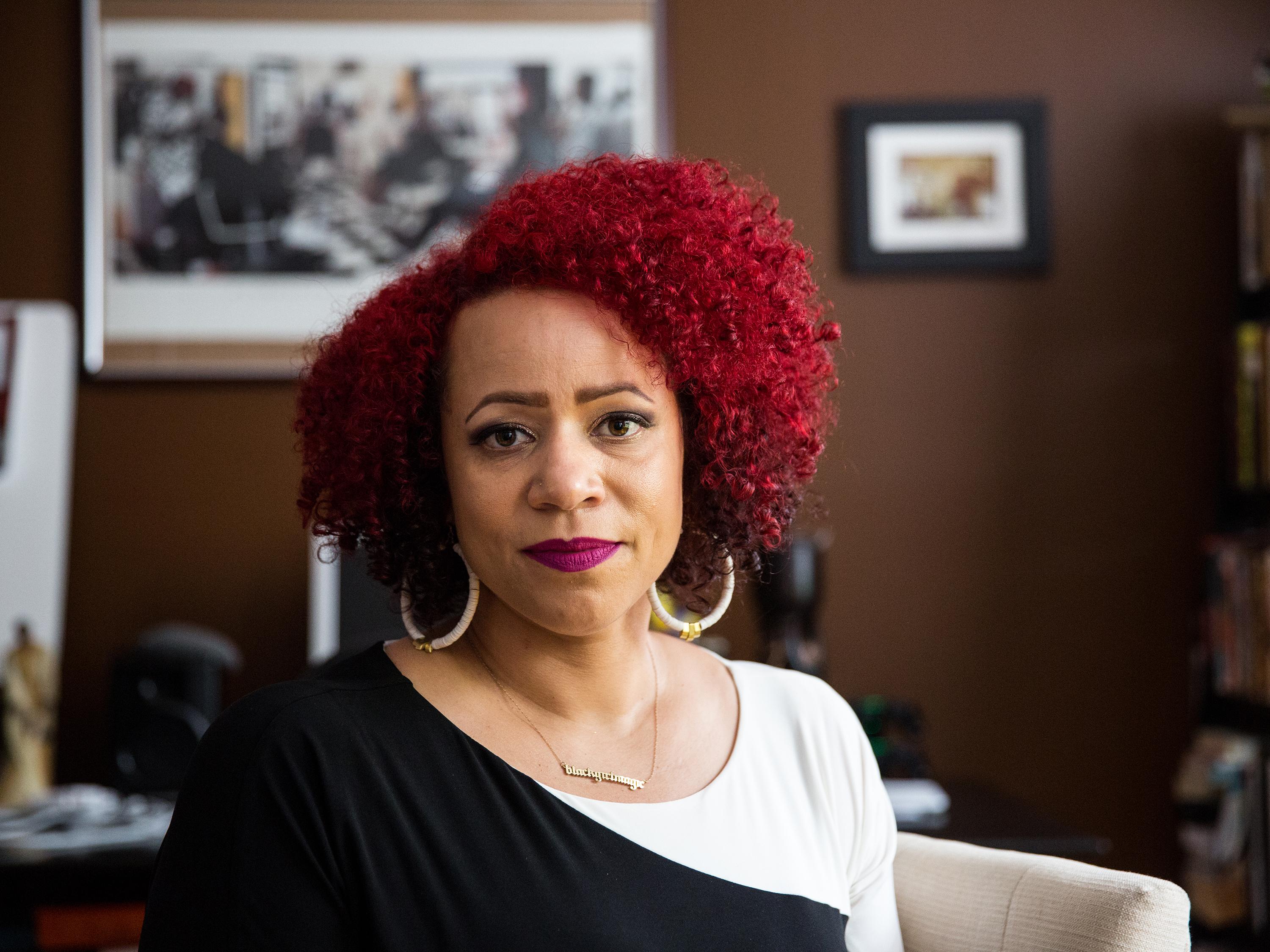Nikole Hannah-Jones, the award-winning creator of the New York Times Magazine’s “The 1619 Project,” about the history and lasting legacy of American slavery, will headline SUNY Oswego’s 32nd annual MLK Celebration at 6:30 p.m. on Tuesday, Feb. 9.
Hannah-Jones won the Pulitzer Prize for commentary for her powerful introductory essay to The 1619 Project. She also was a MacArthur Genius for her efforts to reshape national conversations around education reform. Hannah-Jones also won a Peabody, two George Polk awards, and the National Magazine Awards three times.
Anchored by “A Conversation on Justice, Race and Healing” featuring Hannah-Jones, this year’s MLK Celebration will be a virtual event, and will include audience Q&A following her talk. Readings and student musical performances will again be part of the celebration of the Civil Rights leader’s life, lessons and legacies during Black History Month.
To register for the free event, visit bit.ly/OzMLK21. Registration link will close at 6 p.m. on Feb. 9, or 30 minutes before the event begins.
“Education and housing are the two most intimate areas of American life, and they’re the areas where we’ve made the least progress,” Hannah-Jones has observed, and her work actively strives to promote and cultivate understanding and equity in these and other issues.
Hannah-Jones covers racial injustice for The New York Times Magazine, and has spent years chronicling the way official policy has created -- and maintains -- racial segregation in housing and schools. Her deeply personal reports on the Black experience in America offer a compelling case for greater equity.
“The 1619 Project,” named for the year the first enslaved Africans arrived in America, features an ongoing series of essays and art on the relationship between slavery and everything from social infrastructure and segregation, to music and sugar -- all by Black American authors, activists, journalists, and more.
Hannah-Jones’s Pulitzer-winning introductory essay ran under the headline “Our Democracy’s Founding Ideals Were False When They Were Written. Black Americans Have Fought to Make Them True.” The essay sets a strong tone for the project’s storytelling and goals toward justice.
Random House has also announced it will be adapting the project into a graphic novel and four publications for young readers, while also releasing an extended version of the original publication, including more essays, fiction, and poetry.
Hannah-Jones has written extensively on the history of racism, school resegregation and the disarray of hundreds of desegregation orders, as well as the decades-long failure of the federal government to enforce the landmark 1968 Fair Housing Act.
She is currently writing a book on school segregation called “The Problem We All Live With,” to be published on the One World imprint of Penguin/Random House. Her piece “Worlds Apart” in The New York Times Magazine won the National Magazine Award for “journalism that illuminates issues of national importance” as well as the Hillman Prize for Magazine Journalism.
In 2016, she was awarded a Peabody Award and George Polk Award for radio reporting for her “This American Life” story, “The Problem We All Live With.” She was named Journalist of the Year by the National Association of Black Journalists, and was also named to 2019’s The Root 100 as well as Essence’s Woke 100.
Her reporting has also won Deadline Club Awards, Online Journalism Awards, the Sigma Delta Chi Award for Public Service, the Fred M. Hechinger Grand Prize for Distinguished Education Reporting, and the Emerson College President’s Award for Civic Leadership. In February 2020, she was profiled by Essence as part of their Black History Month series, celebrating “the accomplishments made by those in the past, as well as those paving the way for the future.”
Hannah-Jones co-founded the Ida B. Wells Society for Investigative Reporting with the goal of increasing the number of reporters and editors of color. She holds a master of arts in mass communication from the University of North Carolina and earned her bachelor’s in history and African-American studies from the University of Notre Dame.




